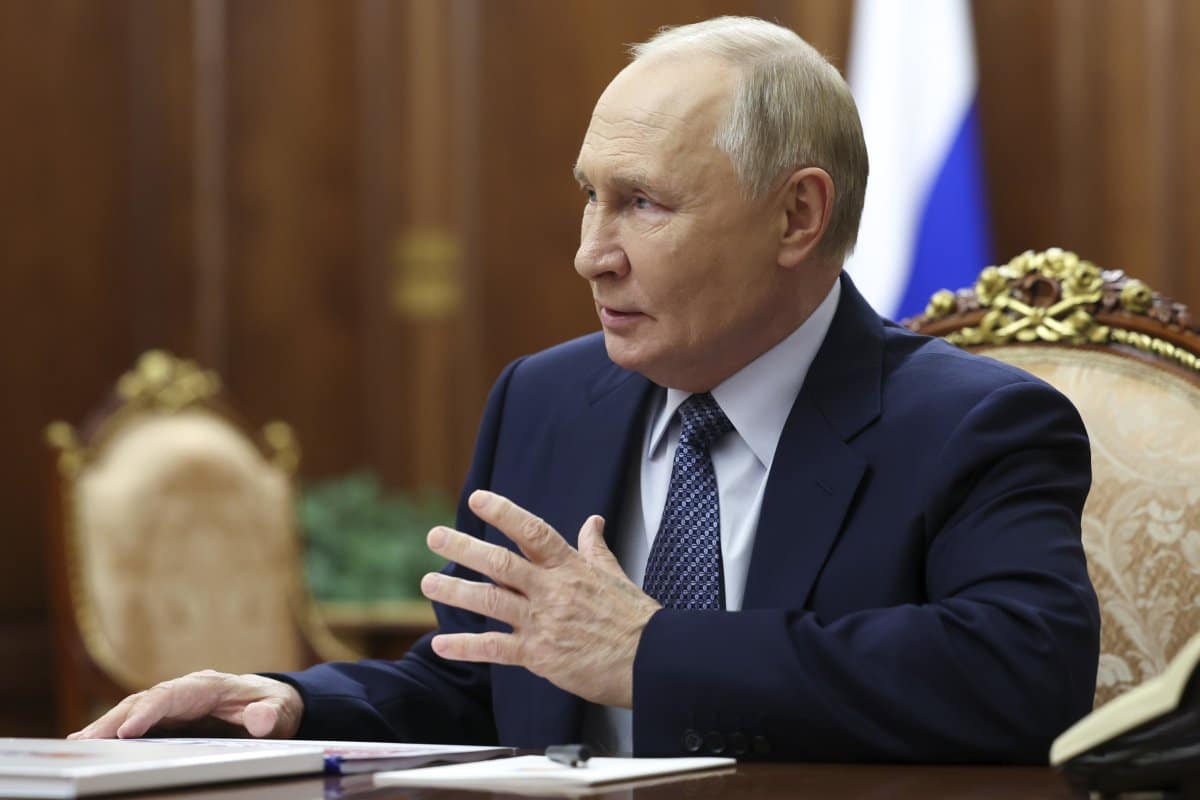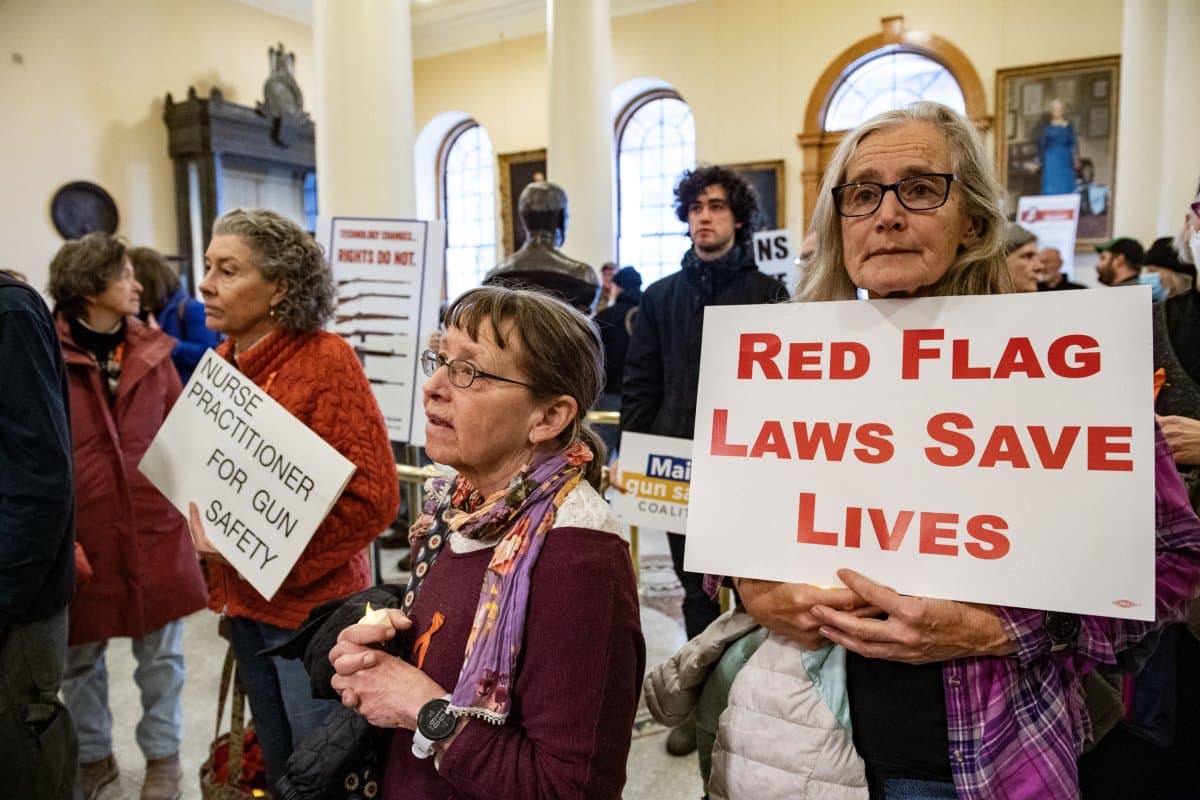German intelligence chiefs have warned that a military confrontation between NATO and Russia is “becoming an option” for Vladimir Putin.
The country’s foreign intelligence chief Bruno Kahl told a parliamentary hearing in the Bundestag on Monday that Russia could be able to launch an attack on NATO by 2030.
The comments are the latest in a series of warnings that Russia’s conflict with Ukraine could escalate towards a much wider scale war.

Russian President Vladimir Putin at the Kremlin in Moscow, Russia, Monday, October 14, 2024. German intelligence officials think Russia could be capable of launching an attack on NATO by 2030.
Mikhail Metzel/Pool Sputnik Kremlin via AP
In the hearing, Kahl said: “Whether we like it or not, we are in a direct confrontation with Russia,” adding that President Vladimir Putin’s long-term aim was to weaken the West.
Putin will “test red lines of the West and further escalate the confrontation,” he added.
“In terms of personnel and material, Russian armed forces are likely to be capable of carrying out an attack against NATO by the end of the decade at the latest,” Kahl said.
Newsweek has contacted the Russian defense ministry for comment.
German officials from the domestic and military intelligence services also noted how their country, the second largest backer of Ukraine’s military after the U.S., is increasingly becoming the subject of Russian spying and sabotage activities.
Domestic intelligence chief Thomas Haldenwang told the hearing: “Russian espionage and sabotage in Germany are increasing, both qualitatively and quantitatively” with Russia willing “put human lives at risk.”
The intelligence official described how one suspected sabotage activity included a parcel bursting into flames just before being loaded onto a DHL cargo plane at a Leipzig airport in July.
He deemed the incident a “lucky accident”, as “if it had exploded onboard during the flight, there would have been a crash and the debris could have hit all the people here in Germany who, openly or secretly, sympathize with Putin.”
The head of military intelligence Martina Rosenberg added that Russia had also been engaging in a “reconnaissance of German arms deliveries to Ukraine” alongside surveying military training and armaments projects.
All three intelligence chiefs asked for more to be done to counter Russian activities on German soil.
Earlier this month, a German parliament member, Sahra Wagenknecht, warned that the ongoing Russia-Ukraine war could spill over into a nuclear confrontation, something that Russian officials have regularly implied, in response to NATO members offering aid and weapons to Ukraine.
Wagenknecht said: “If NATO becomes a party to the conflict in Ukraine, it will get to a point where Russia will carry out a strike on military facilities in NATO territory.”
The official’s warning came after Russia expressed it’s “clear intent” to make changes to its nuclear doctrine last month, a decision which Russian Deputy Foreign Minister Sergei Ryabkov said was “connected to our Western adversaries’ escalation course” in relation to the Ukraine conflict.
On Monday, NATO launched its long-planned nuclear exercise named “Steadfast Noon,” which the organization’s Secretary General Mark Rutte said “is an important test of the alliance’s nuclear deterrent and sends a clear message to any adversary that NATO will protect and defend all Allies.”
The annual fortnight-long exercise involves 2,000 military personnel from eight airbases, mainly flying over Belgium and the Netherlands and in airspace over Denmark, the United Kingdom and the North Sea.
Do you have a story we should be covering? Do you have any questions about this article? Contact LiveNews@newsweek.com.









